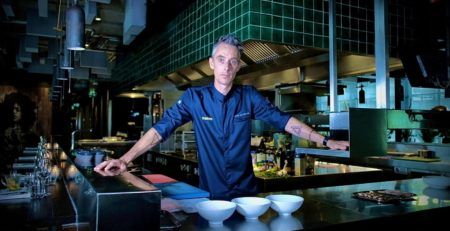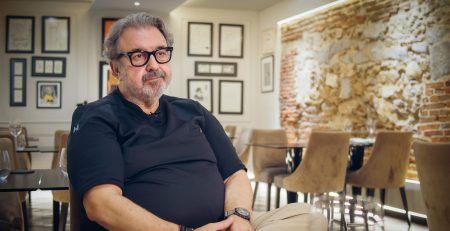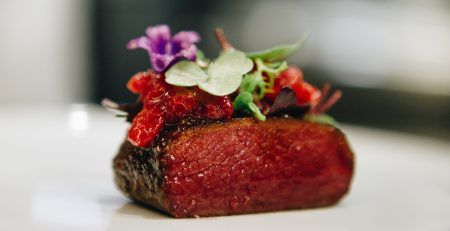He is a living saint patron of pizza-making. Franco opened his restaurant Pepe in Grani in 2012. At the time, Caiazzo was not particularly known, but, thanks to the popularity of the pizzeria, the surrounding area has become famous for its artisanal producers, particularly its olive oil. The ingredients used to make the pizzas come almost exclusively from these local suppliers. The pizzaiolo uses his own, unique blend of flours. His maestry allowed him to bare the title of The Best Chef – Pizza Awards in 2021 and 2022.
The Best Chef: What is the history behind Pepe in Grani?
Franco Pepe: Pepe in Grani’s project is the result of a family experience started by my ancestors. First, my grandfather produced bread in the 30s. Then in the late 50s, he started making pizza bread with my father. In 1961, my father founded his pizzeria. He understood that pizza was a dish, something that you can offer, and it manages to bring people together. He had seen that our bakery was filled with people when they were making pizza. In 1961, my dad opened the pizzeria. Since I was born, I lived my childhood in the pizzeria because dad perceived the pizzeria as a family place.
I did my studies, as did my brothers, but it was shared with the commitment to help the family business. As children we started playing with the dough, helping my Father, bringing pizza to the guest. We can say that there was an unconscious approach to this profession, something that neither my brothers nor I thought we wanted to do in the future, or we thought we were capable of doing.
We can say that it was a life lived in a pizzeria. A life lived with my family who left me so many experiences and teachings. This is somewhat the result of Pepe in Grani’s projects. It was not an easy journey because as a teenager I refused to commit myself to helping my father. I thought my path was studying while he wanted me to do a different job. In those years working with pizza was a very strenuous job because everything was loaded onto a single person: the pizza maker. I saw my father who worked a lot and with great difficulty, but he liked doing that job. However, he hoped that my brothers and I with a course of study would have done another job. We made our parallel journey, studying and helping our father. At school in the morning and in the pizzeria in the evening.
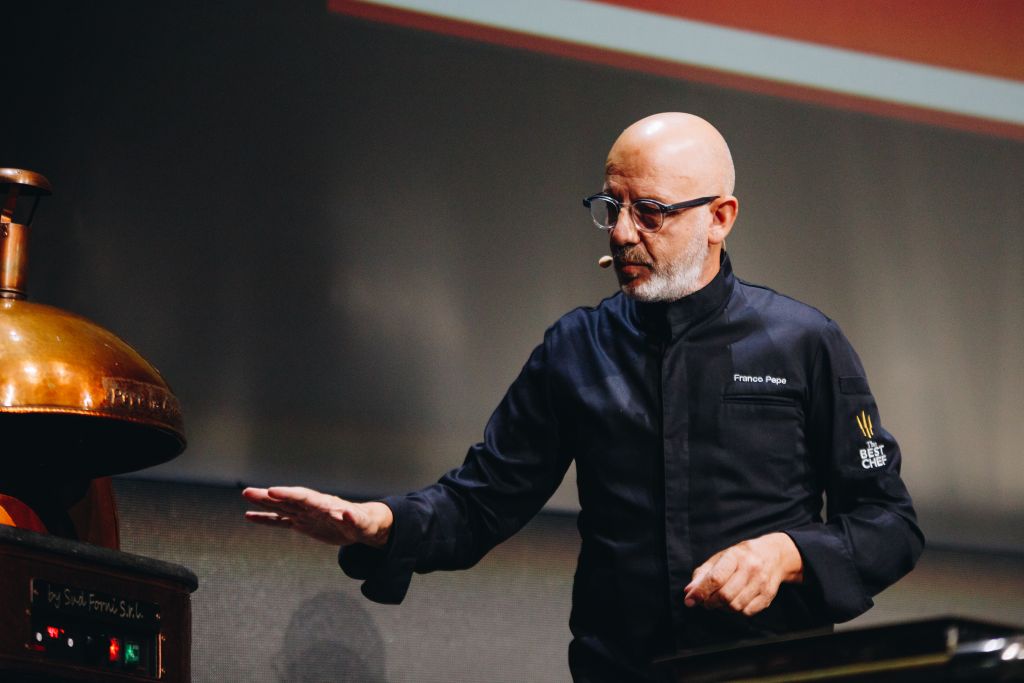
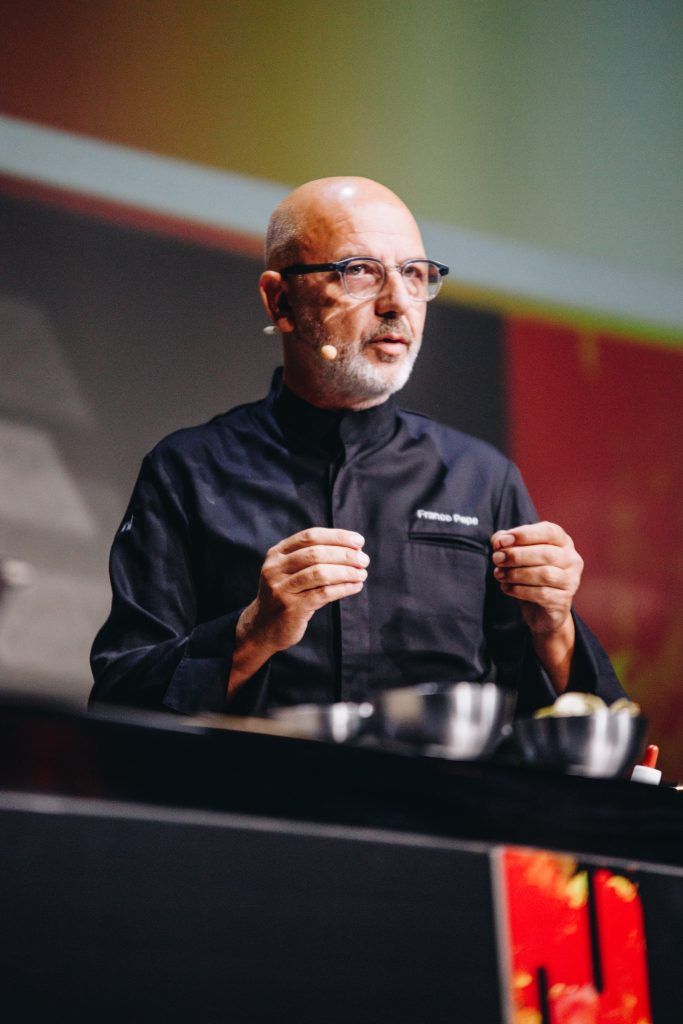
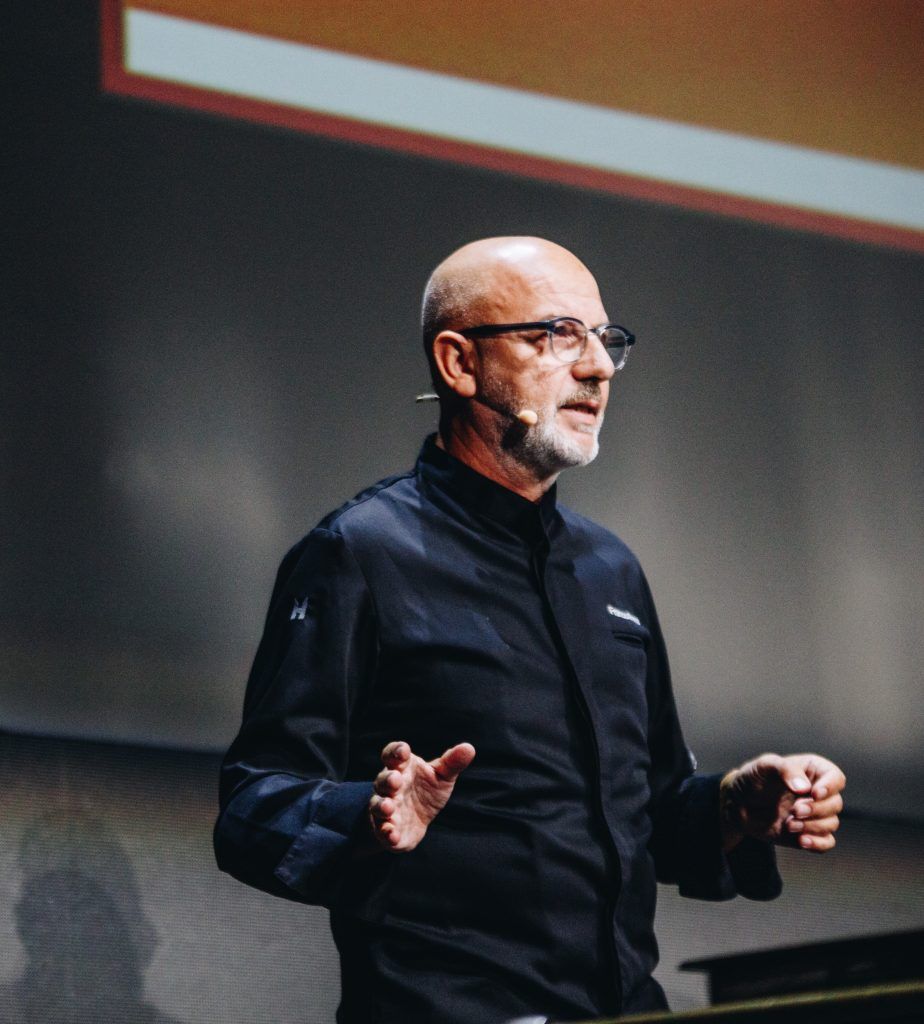
The Best Chef: What was your childhood like, so close to the Pizzeria?
Franco Pepe: I remember when my brother Nino and I, who are 1 year apart from each other, took turns eating with our mother and having lunch with our father after school. He wasn’t just a pizza maker. He had an Osteria-Pizzeria, he lived at work almost 24 hours a day: at lunch in Osteria and in the Pizzeria in the evening. We took turns having lunch with our Father and then in the evening we all went to the Pizzeria which was more “intense” than Osteria, where there could be 10/12 people for lunch.
That sharing helped me a lot to understand what dedication to a job means. My father loved his job, I remember, in the morning, even up to his last days, he was dressed very elegant, with a tie, a suit, and a newspaper under his arm, as if he were going to a ceremony, then after 200 meters from home he entered the Pizzeria and changed into a restaurateur’s clothes and then – a pizza maker’s. Many times during the breaks between lunch and dinner I found him sleeping in a pizzeria in front of a TV, as he spent his rest hours there in the pizzeria. It was a life spent in the Pizzeria where my brothers and I assimilated our father’s knowledge. Along the way, I always wanted to do something different.
The Best Chef: So you became a full-time Pizza Chef in your own place?
Franco Pepe: After my father’s death, I managed the pizzeria with my brothers for a few years. But I had to figure out if I had to continue what my father started. I asked myself if I had to take his teachings and my knowledge to put them to good use. “Should I still make my dad’s pizza? Or maybe my father would be happy if, using his experience, I make my own pizza today?”
I found this 18th-century ruin. It was a ruin as it had been uninhabited for 30 years. During the nights, I came here in the dark, when there was no electricity yet, with only the light of the moon. I used to sit on the steps, and in these moments, I imagined waiters walking there in front of me. I dreamed of my pizzeria. What you see today I dreamed of. For me, it was the realization of my dream.
I’m one of the pizza makers who said ‘no’ to the big cities. You won’t find me in Naples, Rome or Milan. I marry the projects with which I can bring and attract people with my know-how. It’s what I offer. My know-how is to bring people to me.
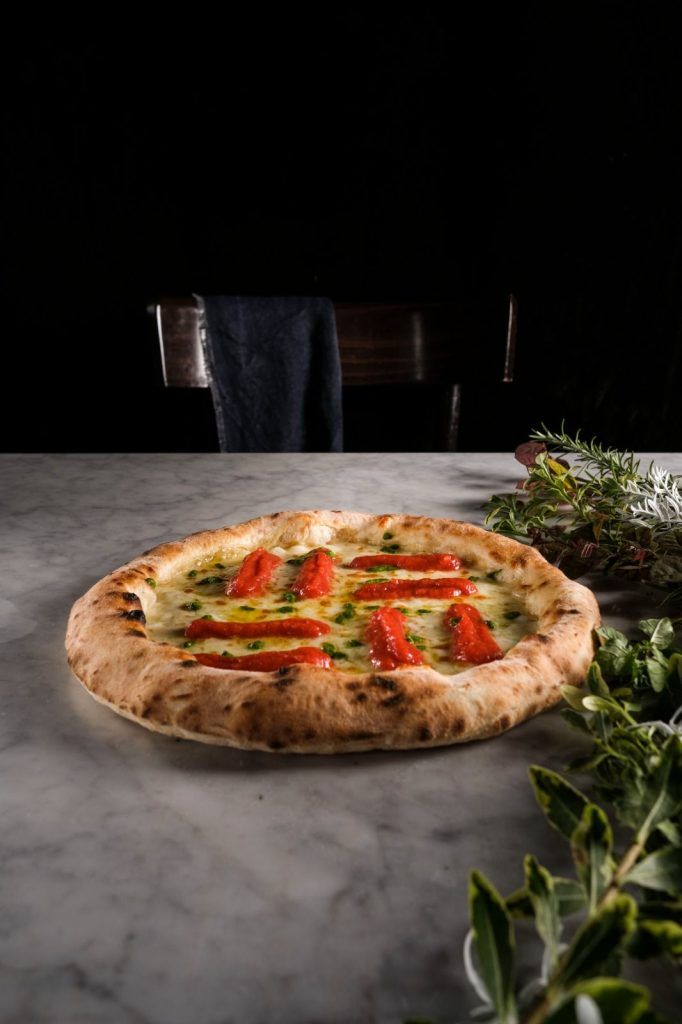
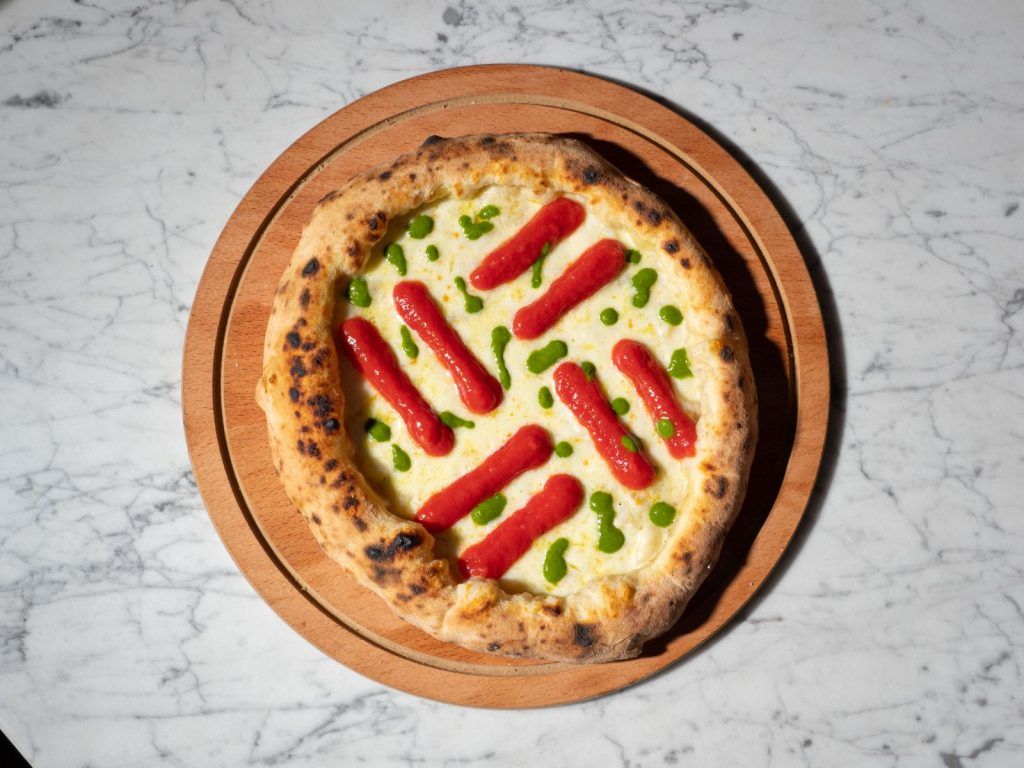
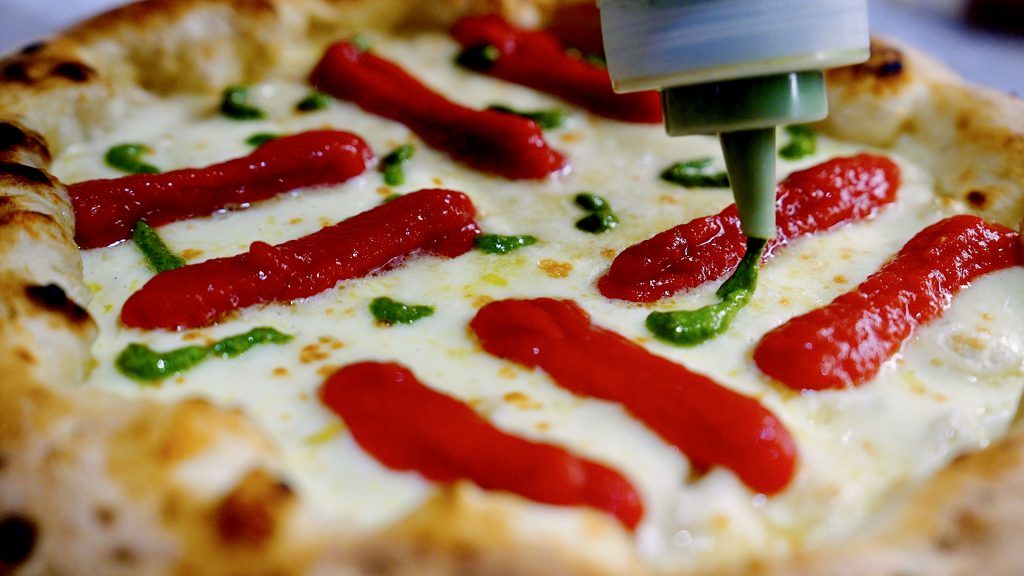
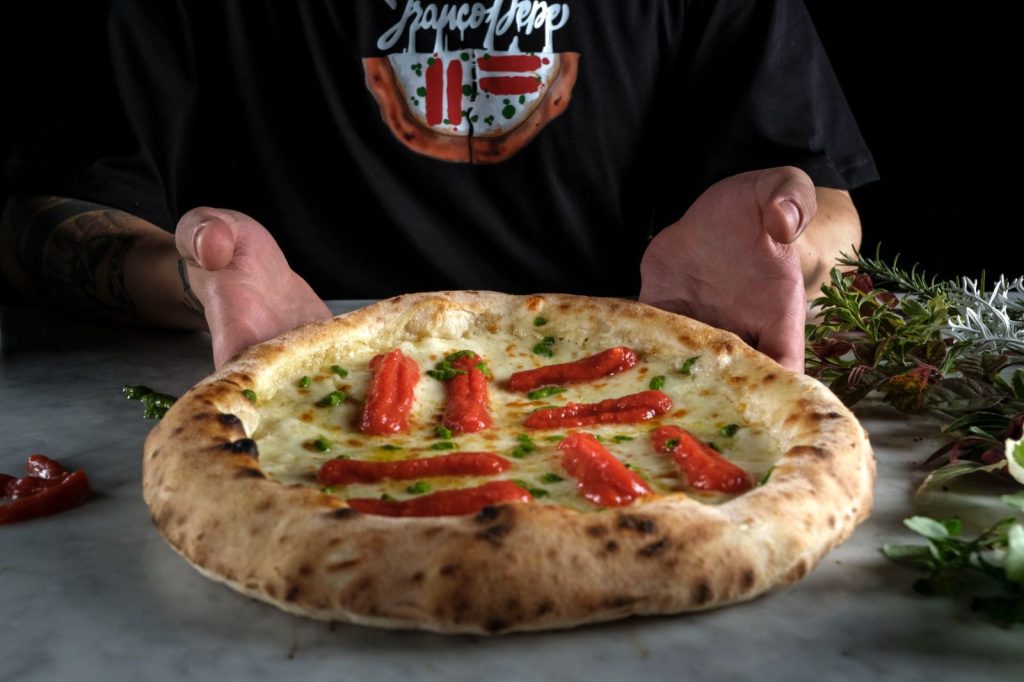
The Best Chef: What makes your pizza so unique?
Franco Pepe: In my pizzeria, I try to keep the identity of the pizza, and of the pizzeria – as food and as a popular place where everyone can come. People do not come to me to eat pizza but to have an experience. Why? Because my goal is to give you an experience with the dough I make, which is very versatile. I offer from fried to baked, from salty to sweet, tastings of 6, 8, 10, 11 dishes. I will make you understand how my dough is versatile and can be adapted to be fried, to be baked, to be savory, or sweet. For me, it is important how I kept the dough worked by hand, to keep the tradition with its evolution, in the choices of the wheat, the blend, so the research and evolution.
We also worked a lot on the health side. Today, in my team, there is a nutritionist biologist. So, a scientific part. Because beware, the pizza chef is a craftsman. He can create a good pizza, but he can’t talk about health. Even though I’ve done some studies, I’ve played sports, I gained some knowledge of food science. But today I wanted to guarantee the customer with the figure of the agronomist, of the nutritionist biologist because I wanted to work with a healthy product. In 2017, I received an award as the ambassador of the Mediterranean diet. So, I started working so that I could apply the criteria of the Mediterranean diet to the pizza.
Responsibility is the cornerstone from which the evolution of a project starts. It means to train, to work on a product that is not only good but also healthy. It means being responsible for the customer, and hospitality. Therefore, Pepe in Grani is not supposed to be a pizzeria but a project based on the use of our local products. I knew the farmers. I had them followed by technical and scientific specialists, and these farmers, about 4, 5 companies that supplied me with products, today have become real companies and today they are not 4, 5, today about 40 companies are participating in my project. A great evolution!
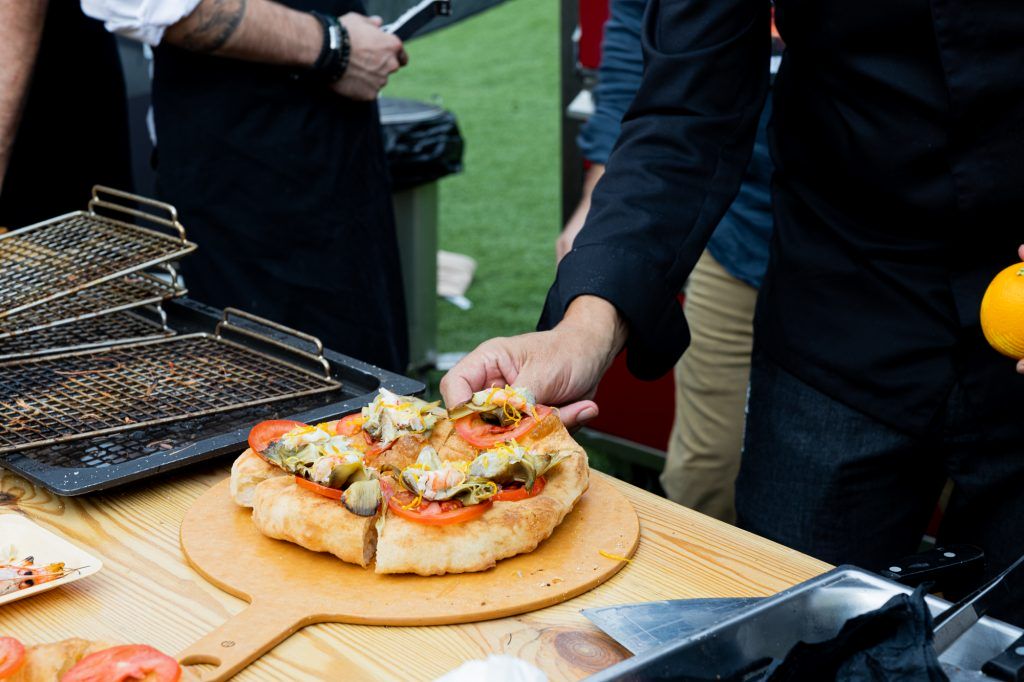
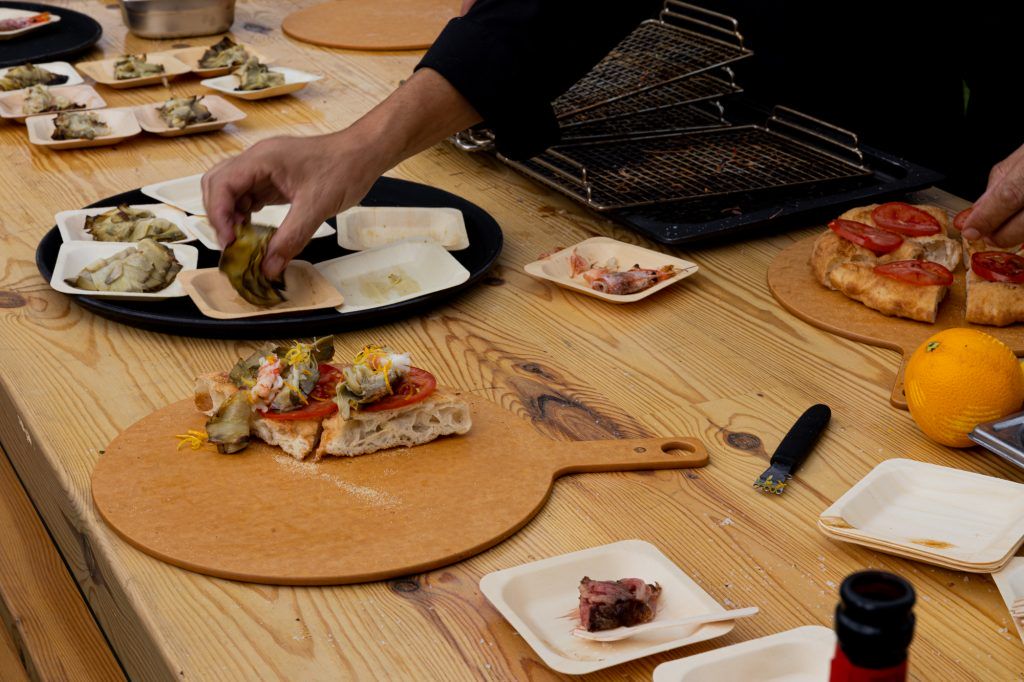
Today many come here, they want to stop, they want to get to know me, they want to get to know my product and get to know the area. Today, there are many B&Bs here. In 2012 there was no place to sleep, now they are full for the next 2 months, because people come from all over the world and we give them the opportunity, in addition, to enjoy my pizza, to stop in the area, to bring them into contact with those farmers who today have turned into real companies, to let people know where the raw material that I serve on my pizza comes from, and this brings us back to a sense of responsibility, because today, in my opinion, the most important thing is that anyone who prepares food must know that they have a great sense of responsibility, because we are what we eat.
My commitment and my sense of responsibility is not to radically transform the whole concept of the pizza world, but to keep tradition in its evolution, and keep the identity of pizza and pizzeria as a popular food.
In 2015, after I “entered” the Louvre in Paris, I did a laboratory with an electric oven, I returned to Italy and created the first tasting room and created the figure of a sommelier in the pizzeria, which is obviously different from a sommelier in fine dining places. Today we have 4 sommeliers in the pizzeria and a wine list with 130 labels. This is to help you understand the evolution of pizzerias, the evolution of Pepe in Grani’s project.
The Best Chef: Can you tell us something about your team?
Franco Pepe: They don’t have to come to work just for an economic reason. They have to embrace the Pepe in Grani’s object, the goals of Pepe in Grani, and therefore the goals of Franco Pepe who with his creativity always wants to make this project grow and make it known to the world. My goal was also to have a relationship with those who are working on my project. It must be a relationship of a large family, but above all to transfer an important concept, to believe in the project, and for me this is the basis of everything.

